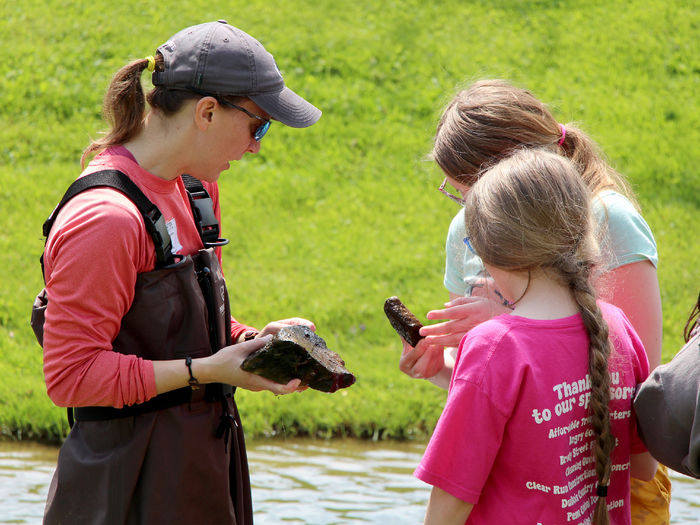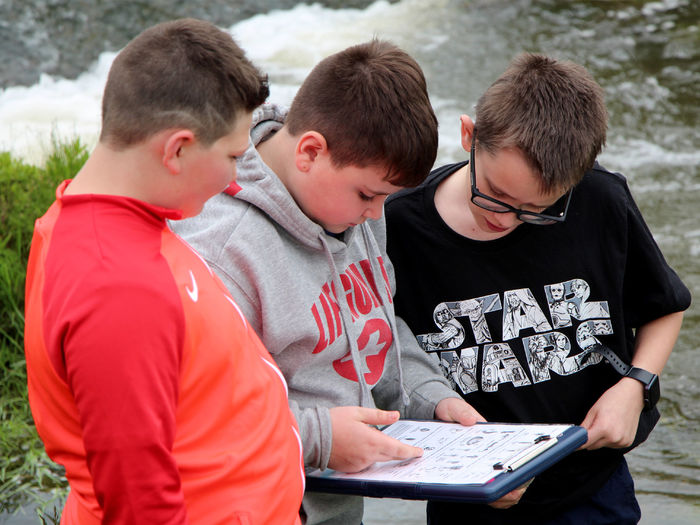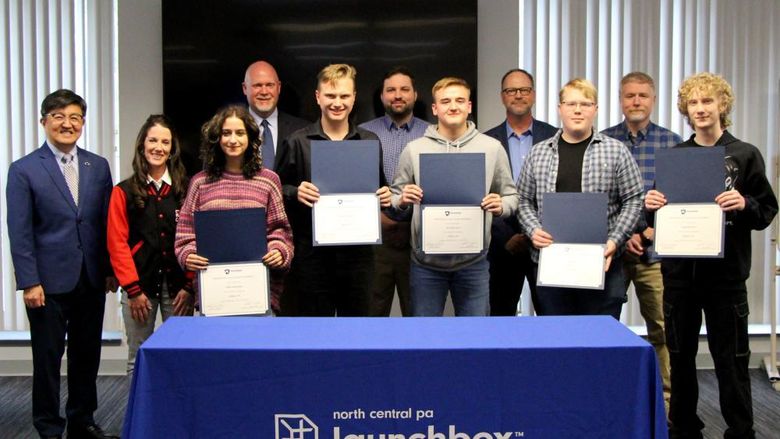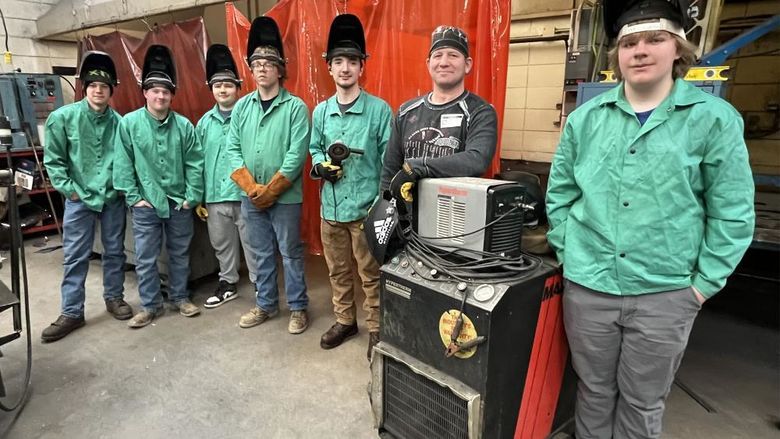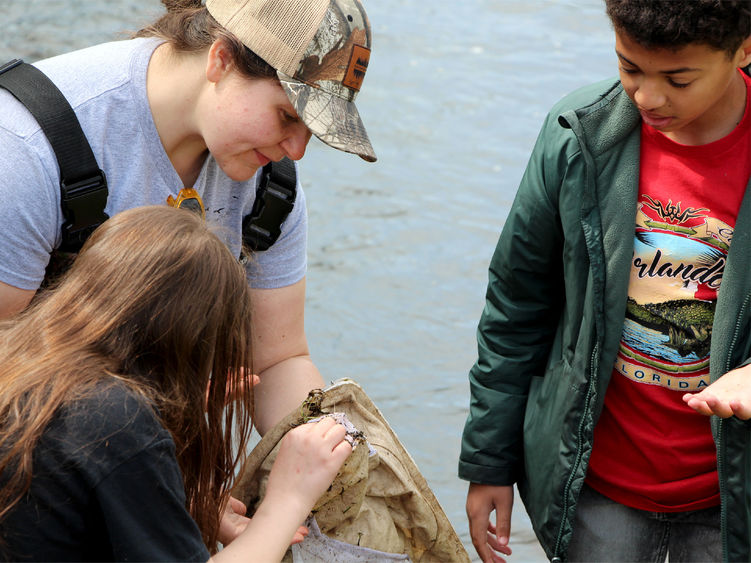
Penn State DuBois Wildlife Technology graduate Andrea Lecuyer, top left, who graduated from the program in spring 2025, works with students at Juniata Elementary in DuBois to view and study organisms found during the wetlands education program held at the school in May.
DuBOIS, Pa. — Students at Juniata Elementary School had the opportunity to dive into the science of wetlands this spring, thanks to a new educational partnership between the DuBois Area School District and the Wildlife Technology program at Penn State DuBois.
DuBois Area superintendent Wendy Benton announced the initiative at a school board meeting in April, highlighting the collaboration as an opportunity to bring hands-on, real-world science experiences to third and fourth grade students.
“The development of the wetlands and stream restoration project at Juniata Elementary, in partnership with Penn State DuBois, presents an exceptional opportunity to expand learning for our students,” Benton said. “Having a natural stream within walking distance of the school enriches the science curriculum by transforming abstract environmental concepts into real-world experiences. Students can directly observe ecosystems, water cycles and wildlife habitats, fostering a deeper understanding of biology, conservation and earth sciences.”
The program included two key sessions at Juniata Elementary in DuBois. On Wednesday, April 30, students participated in an in-class lesson focusing on the characteristics of wetlands, native organisms, and the values of wetlands.
Then, a hands-on field session took place on May 8 on the grounds surrounding the school. Guided by representatives from the Wildlife Technology program, students were directly involved in finding and studying living organisms within the grounds and body of waters located around school grounds. This gave students direct access to many of the organisms they learned about in the classroom previously.
Emily Thomas, certified wildlife biologist and associate teaching professor of wildlife technology, led the program with five of her students: Sallee Boose, Andrea Lecuyer, Austin Dubay, Kam Knisley and Emma Sanford.
“Designing and executing the wetlands program for Juniata Elementary was a wonderful opportunity for my students to gain valuable experience in environmental education,” Thomas said. “We worked as a team to develop the content, demonstrations, and activities beforehand and they did a fantastic job presenting and leading the elementary students in the field study. We were impressed by the elementary students’ enthusiasm, prior knowledge, and thoughtful questions and had a great time teaching them both in the classroom and in the field.”
“Our wetlands and stream also support inquiry-based and project-based learning, empowering students to become young scientists through hands-on data collection, observation, and environmental monitoring,” Benton said. “Over time, this kind of experiential learning has been shown to improve retention, engagement and critical-thinking skills. It fosters environmental stewardship from a young age, encouraging children to take pride in their local ecosystem and understand the importance of sustainability.”
Mollie Anzinger, principal of Juniata Elementary, agreed.
“I couldn’t be prouder of the way our students, staff and partners came together for this wetlands education experience," Anzinger said. "This collaboration with Penn State DuBois truly brought our learning mission to life. It gave our students a powerful opportunity to explore science not just from a textbook, but from the world around them, right here on our beautiful school grounds. This experience embodied our pillars of being caring, careful and courageous. Our students showed care and curiosity for the natural world, were careful and respectful as they explored living organisms in the field and demonstrated courageous learning by asking thoughtful questions and trying new things. These are the values we instill every day at Juniata, and we saw them shine throughout this project. We are so grateful to Penn State DuBois and the Wildlife Technology team for inspiring our young scientists and helping them see the real-world impact of their learning.”
“Moreover, the partnership with Penn State DuBois offers mentorship opportunities and a potential pipeline for future STEM learning,” Benton added. “It provides a living example of how universities and public schools can collaborate to create meaningful, lasting educational impact.”
